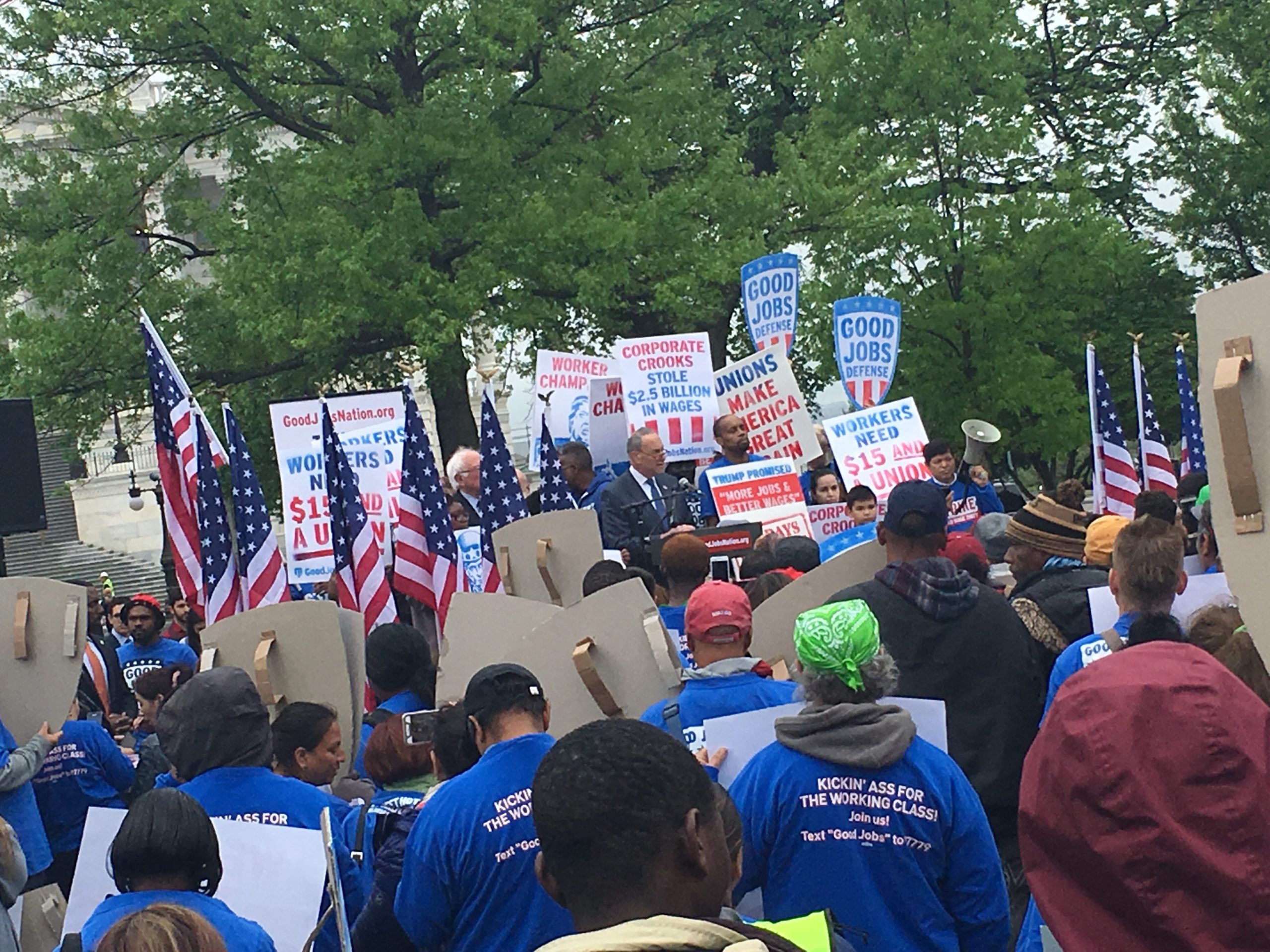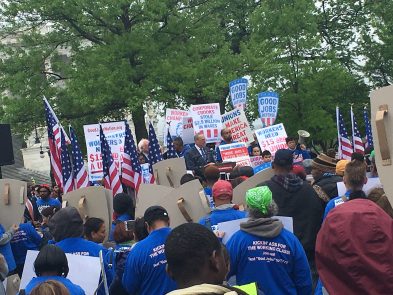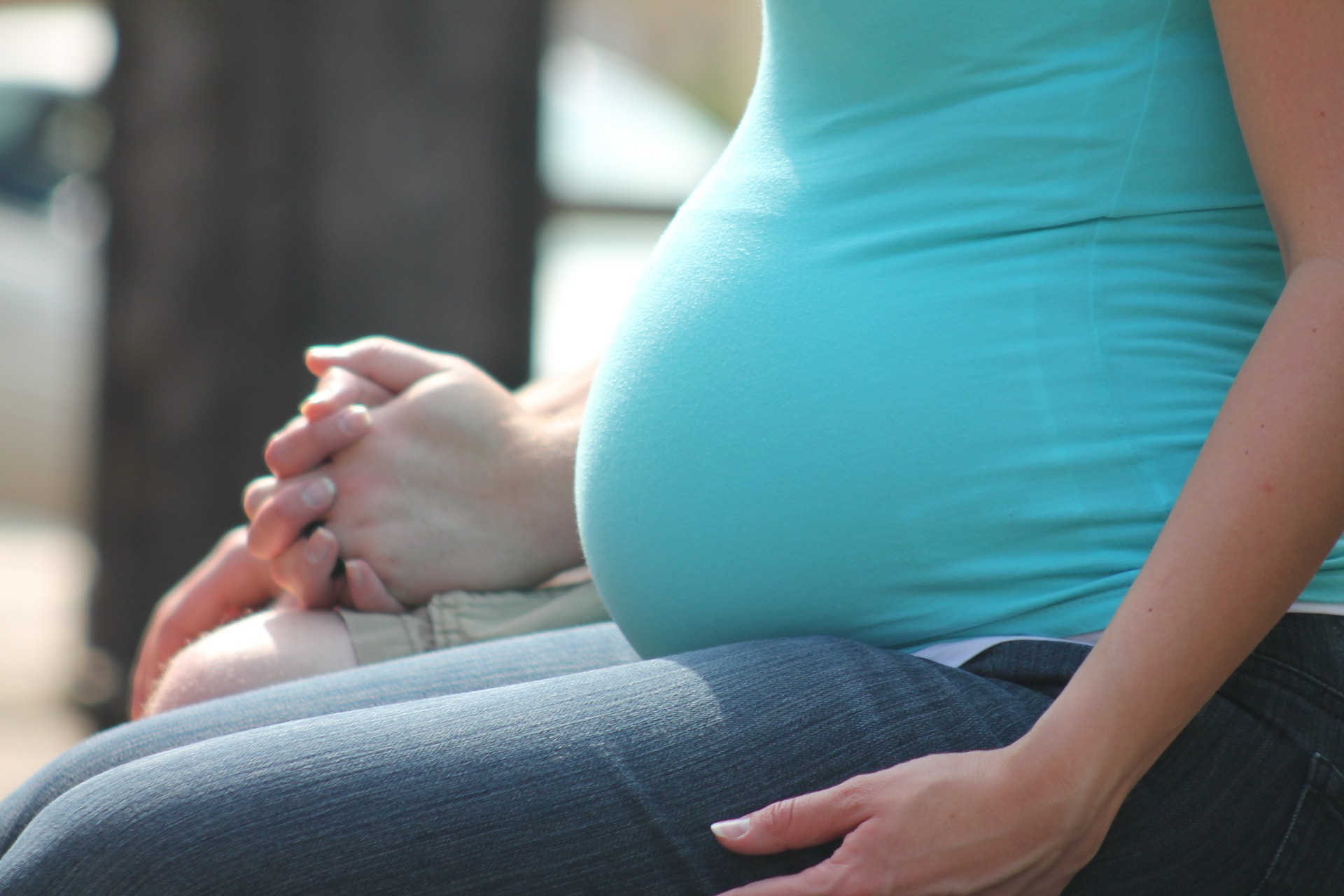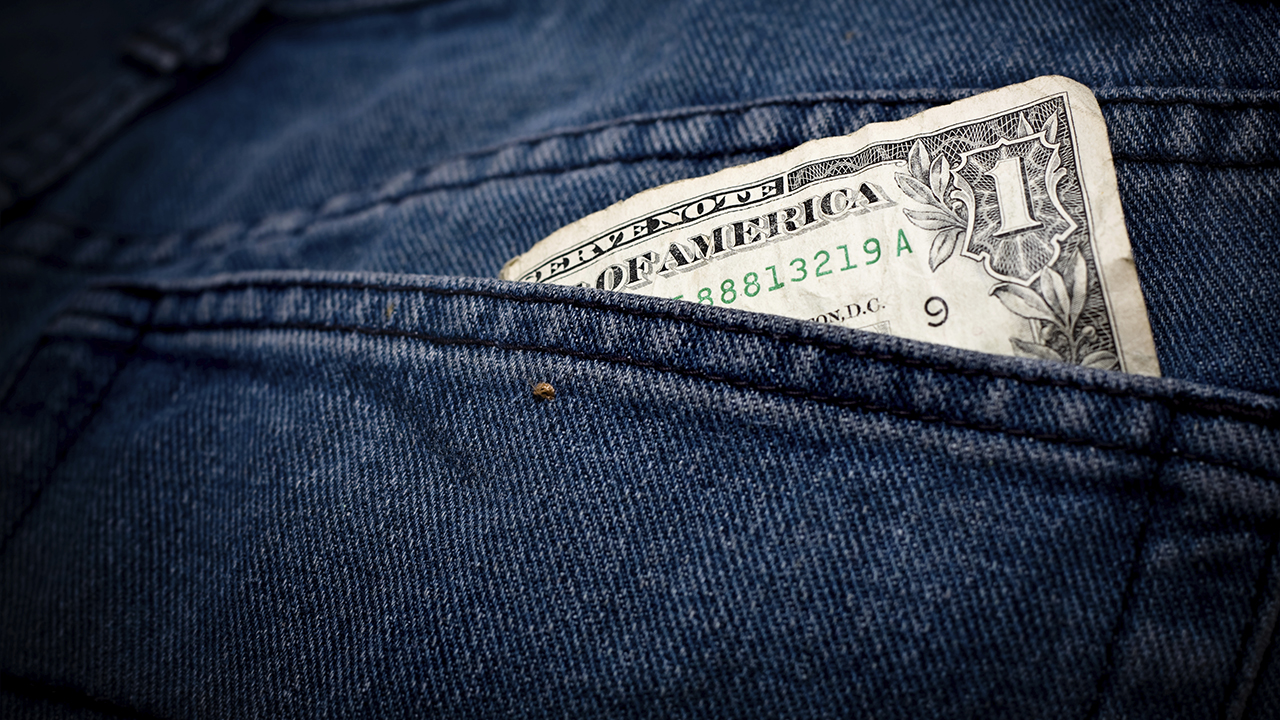Abortion rights, women of color, and LGBTQI+ people are under attack. Pledge to join us in fighting for gender justice.
It’s About Dang Time for a $15 Minimum Wage

 You know what I’m really, truly tired of these days? Watching our elected representatives pretend to care about people and families who are struggling to scrape by, often in the very same speech in which they describe a bill to, say, take away women’s health care or their overtime pay. So it was a refreshing change of pace this morning to see that Senator Bernie Sanders (I-VT), Senator Patty Murray (D-WA), Rep. Keith Ellison (D-MN), and Rep. Bobby Scott (D-VA) announced—at a rally with hundreds of working people—that they are about to introduce a bill to raise the federal minimum wage to $15 an hour, more than twice the pitiful $7.25 it is today (and has been for nearly a decade).
You know what I’m really, truly tired of these days? Watching our elected representatives pretend to care about people and families who are struggling to scrape by, often in the very same speech in which they describe a bill to, say, take away women’s health care or their overtime pay. So it was a refreshing change of pace this morning to see that Senator Bernie Sanders (I-VT), Senator Patty Murray (D-WA), Rep. Keith Ellison (D-MN), and Rep. Bobby Scott (D-VA) announced—at a rally with hundreds of working people—that they are about to introduce a bill to raise the federal minimum wage to $15 an hour, more than twice the pitiful $7.25 it is today (and has been for nearly a decade).
The sponsors claim that their bill would help working families make ends meet, and guess what? It would actually do that! For A LOT of people. Specifically, by the time the minimum wage reaches $15 in 2024, more than 41 million workers would get a raise. That number includes one in three working women—more than 23 million! Among working women of color, even more than one in three (37 percent) would benefit. And we’re not talking about pennies, either: by 2024, affected workers who work year-round would see their annual incomes rise by nearly $3,500, on average—enough to make a meaningful difference for millions of women who are struggling to put food on the table, access the reproductive health care they need, and otherwise support themselves and their families.
Raising the minimum wage is not a cure-all. But it is a concrete step toward greater economic security for millions. And because it disproportionately boosts wages for women, especially women of color (who disproportionately hold low-wage jobs), it could help close the gender wage gap, too. New NWLC analysis shows that women working full time in states with a minimum wage of at least $8.25 an hour—that is, at least a dollar higher than the federal level—face a wage gap that is a whopping 41 percent smaller than the wage gap in states with a $7.25 minimum wage.
Millions of women in California, New York, D.C., and other cities and counties that are on their way to a $15 minimum wage already stand to benefit from much bigger paychecks. It’s time for the rest of the country to follow suit.





